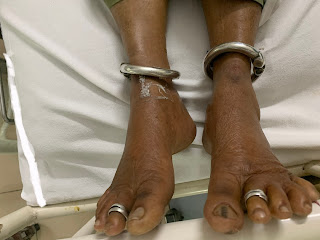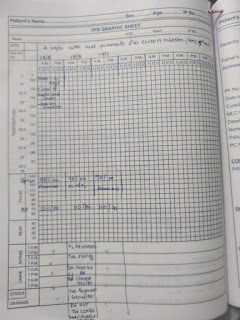70 YEAR FEMALE WITH CHEST PAIN
G Suhitha Gnaneswar , roll no : 34
This is an online E log book to discuss our patient's de-identified health data shared after taking his/her/guardian's signed informed consent. Here we discuss individual patient's problems through series of inputs from available global online community of experts with an aim to solve those patient's clinical problems with collective current best evidence based inputs. This e-log book also reflects my patient centered online learning portfolio and your
valuable comments on comment box is welcome
January 10 , 2022
70 YEAR OLD FEMALE WITH CHEST PAIN
CASE : 70 year old male with chest pain and fever
HISTORY OF PRESENTING ILLNESS:
Patient was apparently asymptomatic one day ago, when she developed fever.
-The fever was low grade, and relieved on taking medication. Fever was not associated with chills and rigors, cough, or cold.
-Patient complained of chest pain since last night. She was asleep when the pain began and woke up due to the discomfort.
-The pain was radiating to left shoulder, and the pricking sensation continuous to the left hand. The pain is associated with sweating, heaviness in the chest and chest tightness.
-Patient also had one episode of vomiting at 4am of day of admission. The vomitus was non projectile, non-bilious, non-bloodstained and contained food particles. It was non foul smelling.
-Patient has no complaints of loss of consciousness, dizziness, headache, burning micturition, pedal edema or shortness of breath.
PAST HISTORY:
Patient is a known case of diabetes and hypertension since 20 years.
Patient is using Metformin (500 mg) and vildaglitan(50mg) and Telma (40 mg). Patient is regular with medication.
In 2007, patient had similar complains, and was admitted in NIMS and had a PTCA with stent implantation. She was diagnosed with triple vessel disease.
In 2015, RCA CABG done, and was admitted in NIMS,when patient had a repeat of similar complaints.
In 2017, patient again had similar complaints, was admitted in NIMS, and conservatively treated.
Patient has no history of thyroid, Tuberculosis or asthma.
FAMILY HISTORY:
Not significant
PERSONAL HISTORY:
Diet: Mixed
Appetite: Normal
Bowel and Bladder: Regular
Sleep: Adequate
No Allergies.
Occasional Alcohol intake.
GENERAL EXAMINATION:
Patient is conscious, coherent and cooperative. Well oriented to time and space. Moderately built and moderately nourished.
After taking informed consent and in a well lit room, examination was conducted.
No pallor, icterus, clubbing, cyanosis, generalized lymphadenopathy, or edema.
Vitals:
PR- 84 bpm
BP- 130/80 mmHg measured in the left upper limb in the supine position
RR- 15 cpm
Temp- Afebrile
Fever chart-
SYSTEMIC EXAMINATION:
CVS:
1) Inspection:
- Chest wall is symmetrical
- No dilated veins and sinuses.
- Scar present on the midline along the sternum
- No visible apical pulse
- No visible pulsations
- Visible scar is present on the midline.
2) Palpation:
- Apical Pulse: Normal in the 5th intercoastal space, 1cm lateral to the midclavicular line.
- No palpable pulsations
3) Percussion
- Heart Borders can be percussed normally.
4) Auscultation:
- S1, S2 sounds are heard.
- No abnormal heart sounds heard
Respiratory System:
1) Inspection:
- Chest is symmetrical
- Trachea is in the midline
- No drooping of shoulders
- No sinuses and dilated veins
2) Palpation:
- Trachea – midline
- No dilated veins
- Chest movement is symmetrical
3) Percussion:
R L
Infraclavicular Resonant Resonant
Mammary. Resonant Resonant
Axillary. Resonant Resonant
Infraaxillary Resonant Resonant
Suprascapular Resonant Resonant
Infrascapular Resonant Resonant
4) Auscultation:
-Breath sounds: Normal Vesicular Breath sounds
- No added breath sounds
Abdominal Examination:
1) Inspection:
- Shape: scaphoid, not distended
- Flanks: free
- Umbilicus: midline, inverted
- Skin: not stretched, shiny, no scars, sinuses, striae
- No dilated veins
- No abnormal movements of the abdominal wall, visible peristalsis,
2) Palpation:
- No local rise in temperature, no tenderness
- Soft on touch
3) Percussion:
- No fluid thrill, shifting dullness
4) Auscultation:
- Normal bowel sounds heard
CNS:
- Normal higher mental functions
- No focal neurological deficit
- All higher motor functions are normal
ECG:
Day 1
Day 3
Day 4
Day 5
Day 6
CUE: Sugars: +++
Urine for Ketone Bodies (dipstick test): Positive
Trop I: positive
Blood urea: 54mg/dl
Serum creatinine: 1.5mg/
TREATMENT:
1. Inj. HAI 1 ml (40 U) + 39 ml NS at 8 ml/hr to maintain GRBS less than 200 mg/dl
2. IVF. 1 unit NS continuous infusion at urine output + 30ml/hr
3. TAB ECOSPORIN 75 MG PO OD
4. TAB CLOPIDOGREL 75 MG PO OD
5. TAB CARDIVAS 3.125 MG PO BD
6. INJ. CLEXANE 60 MG S/C OD
7. TAB MONIT GTN 2.6 MG PO OD
8.TAB ATROVAS 40 MG PO OD
9. TAB CARDACE 2.5 MG PO OD
10. INJ. LASIX 20 MG IV BD
11. SYP. CREMOFFIN PLUS 10 ML PO H/S
QUESTION:
Q. Study of aspirin for treatment of MI ? How effective is it when studied against a placebo?
A)Data from one of the first large-scale randomised controlled studies assessing the effectiveness of aspirin as an antithrombotic agent were published in 1983 – 1,266 men with UA received treatment with either aspirin or placebo, with results showing a significant reduction in progression to MI among those taking aspirin.[17] Aspirin in the setting of acute MI has subsequently been found to have major beneficial effects on morbidity and mortality,[18,19] and multiple meta-analyses have confirmed the pivotal role that aspirin plays in reducing cardiovascular events and mortality in patients


















Comments
Post a Comment